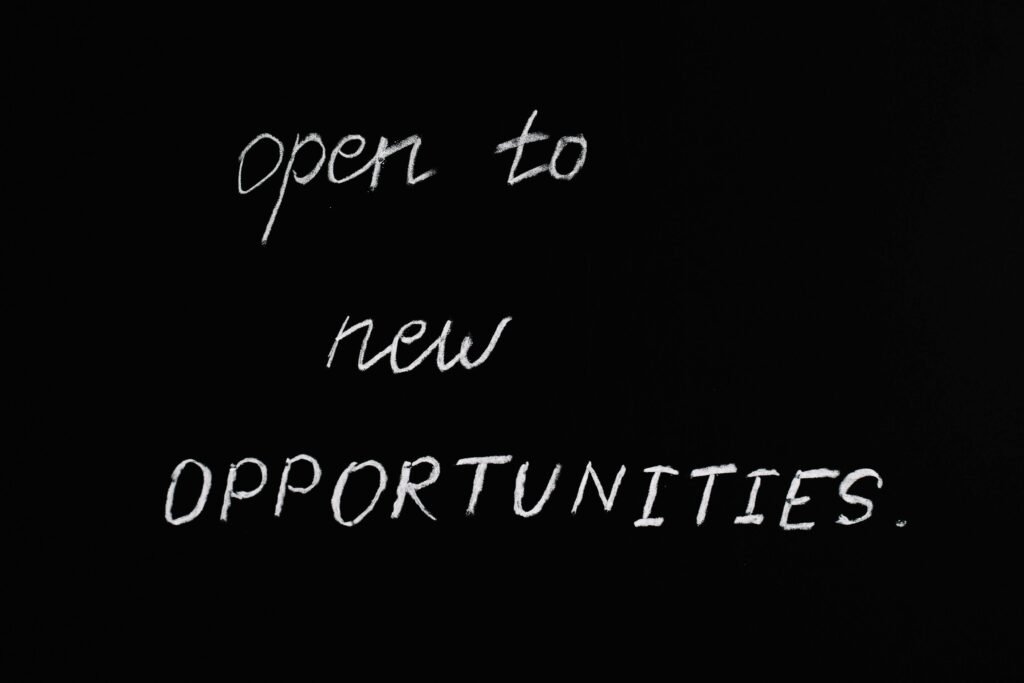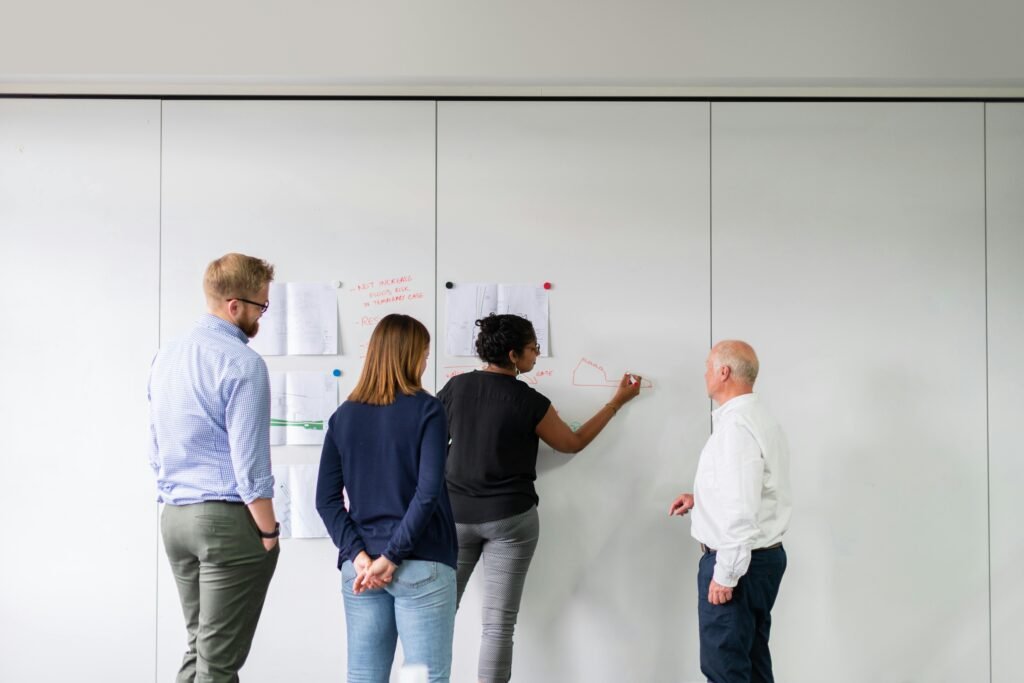
Introduction to Mental Flexibility
Life presents us with a variety of challenges, each requiring unique strategies to navigate successfully.
Mental flexibility, the ability to adapt our thoughts and behaviors in response to changing circumstances, plays a critical role in how we face these situations.
Unlike rigid thinking, mental flexibility allows us to approach problems with creativity, adjust to new environments, and stay open to possibilities we may not have considered initially.
One way mental flexibility can manifest is in our ability to reframe difficult experiences.
For instance, rather than seeing a career setback as a failure, it can be an opportunity to reassess priorities or explore alternative paths.
This mindset doesn’t eliminate the difficulty but helps reduce its emotional toll, making room for more constructive actions.
The same principle applies to personal relationships; responding thoughtfully to conflicts instead of reacting impulsively can strengthen connections and lead to better resolutions.
Another important aspect of mental flexibility involves managing emotions effectively.
Emotional responses are a natural part of facing adversity, but allowing emotions to dominate our decisions can hinder problem-solving.
Practices like pausing to assess the situation or focusing on specific, actionable steps can help redirect our energy toward overcoming the issue at hand.
Over time, these practices create a habit of responding calmly, even in high-stress situations.
Finally, mental flexibility is deeply connected to learning and unlearning.
Being willing to revise old beliefs or adopt new skills is essential for personal growth.
For example, adapting to advancements in technology or shifts in societal norms often requires letting go of outdated approaches and embracing innovation.
This willingness to evolve can open doors to opportunities and foster resilience in the face of uncertainty.
Embrace Change

Adapting to change is an essential skill that helps us navigate the unpredictable nature of life.
When we actively embrace change, it becomes less of a threat and more of an opportunity to grow and learn.
These qualities empower us to respond to change with a sense of purpose and adaptability.
One way to develop this mindset is by focusing on the benefits of change, even when it initially feels uncomfortable.
For instance, many people have successfully transitioned to new career paths after industries underwent rapid shifts.
Instead of resisting the changes, they invested in learning new skills and technologies, eventually finding themselves in roles that were more aligned with their passions or long term goals.
Similarly, personal changes, such as relocating to a new city, can seem overwhelming at first but often lead to enriching experiences and a broader perspective.
Another strategy is to intentionally step outside of your comfort zone.
Small, intentional changes in your daily routine can help normalize uncertainty and foster adaptability.
For example, trying a different method of solving a problem or engaging in a new hobby can serve as practice for larger, less predictable life transitions.
Over time, these efforts build the confidence needed to face bigger changes with a sense of preparedness.
It’s also important to recognize that adapting to change doesn’t mean ignoring the difficulties it may bring.
Adjusting to new circumstances can feel stressful, but this is a natural part of the process.
Developing healthy coping mechanisms, such as seeking support from others or practicing stress management techniques, can help ease the emotional challenges associated with change.
This approach allows us to stay grounded while finding productive ways to move forward.
Ultimately, the ability to embrace change is less about eliminating discomfort and more about developing the mental and emotional tools to navigate it effectively.
By approaching each change as an opportunity for growth, we can transform challenges into moments of progress and resilience.
Cultivate a Growth Mindset

A growth mindset encourages viewing challenges as opportunities to develop skills and improve, rather than as permanent roadblocks.
This perspective shifts the focus from avoiding mistakes to embracing the learning process.
For instance, individuals with a growth mindset may approach setbacks as chances to refine their strategies and build greater resilience for future situations.
One effective way to cultivate this mindset is by celebrating effort rather than just outcomes.
For example, instead of solely focusing on achieving a specific goal, recognize the persistence and hard work that went into pursuing it.
This approach encourages continuous growth and reduces the fear of failure, making it easier to take on new challenges.
Reframing negative self-talk is another powerful strategy.
Pay attention to internal dialogue during difficult moments.
When thoughts like “I can’t do this” arise, consciously replace them with constructive alternatives such as “This is an opportunity to figure out a new solution.”
This shift in language reinforces the belief that improvement is always possible with practice and dedication.
Another practical technique is to set small, achievable goals that align with a broader vision.
Breaking larger tasks into manageable steps can make the process feel less overwhelming and provide a sense of accomplishment at each stage.
For example, if learning a new skill feels daunting, start with a short daily practice and gradually increase the difficulty as confidence builds.
Seeking feedback is also essential for fostering a growth mindset.
Constructive criticism, when approached with openness, provides valuable insights into areas for improvement.
Instead of taking feedback personally, use it as a tool to refine your abilities.
Regularly asking trusted colleagues, mentors, or friends for input can help uncover blind spots and accelerate personal growth.
Finally, understanding that progress is not always linear can strengthen this mindset.
Recognize that periods of stagnation or regression are natural parts of the learning process.
Instead of becoming discouraged, focus on what can be learned during these times and how to adapt moving forward.
Practice Mindfulness

Mindfulness is the practice of intentionally focusing your attention on the present moment while accepting it without judgment.
It strengthens mental flexibility by training your mind to acknowledge emotions and thoughts without immediately reacting to them.
This skill becomes particularly useful during stressful situations, as it helps create a pause between experiencing an event and choosing a response.
One simple yet effective mindfulness technique is focused breathing.
By taking slow, deep breaths and concentrating solely on the sensation of air entering and leaving your body, you can calm your nervous system and reduce the intensity of overwhelming emotions.
This practice not only improves emotional regulation but also enhances your ability to stay grounded in challenging moments.
Mindful walking is another practical exercise to incorporate into your daily routine.
While walking, pay close attention to the rhythm of your steps, the feel of the ground beneath your feet, or the sounds and sights around you.
This intentional focus helps quiet racing thoughts and allows you to fully engage with your environment.
Over time, these moments of presence can improve clarity and resilience when facing unexpected difficulties.
For those who find themselves caught in cycles of stress or worry, practicing a body scan can be highly beneficial.
During a body scan, you mentally focus on different parts of your body, starting from your toes and gradually moving upward.
Notice any tension or discomfort, but resist the urge to judge or change these sensations.
Instead, observe them with curiosity and acceptance.
This practice builds awareness of how your body reacts to stress and encourages a sense of calm.
Mindfulness also involves fostering compassion, both for yourself and others.
When faced with self-criticism or frustration, try acknowledging your feelings with kindness instead of judgment.
For example, if you’ve made a mistake, remind yourself that errors are part of being human.
This shift not only reduces emotional strain but also makes it easier to approach challenges with a clear and balanced mindset.
Incorporating mindfulness into your daily life helps you develop the capacity to face difficulties with greater confidence and steadiness.
Develop Problem Solving Skills

Developing problem solving skills strengthens your ability to handle unexpected situations and adapt effectively.
One effective strategy is brainstorming multiple solutions to a given problem.
Write the problem down clearly and list potential approaches without judgment, focusing on generating as many ideas as possible.
Once you have a list, evaluate the pros and cons of each option to determine the most practical path forward.
This exercise encourages open-mindedness and helps shift focus from obstacles to possibilities.
Breaking complex issues into smaller, more manageable parts is another useful approach.
By dividing the problem into specific steps or components, it becomes easier to tackle each piece methodically.
For instance, if a project at work feels overwhelming, start by identifying smaller tasks that need attention, prioritize them, and create a timeline for completing each one.
This process not only makes the problem more approachable but also builds momentum as you check items off your list.
Reframing how you view the challenge can also support problem solving.
Instead of seeing the situation as a roadblock, consider it an opportunity to develop new skills or gain insights.
Shifting the narrative in this way reduces the emotional weight of the problem and allows you to approach it with a clearer head.
For example, if a team conflict arises, treating it as a chance to strengthen collaboration can foster creative solutions and improve group dynamics.
Seeking input from others is another powerful way to expand your problem solving capacity.
Different perspectives can reveal solutions you may not have considered on your own.
Engage with people who have relevant expertise or experience, or simply ask a trusted colleague or friend for their thoughts.
This collaboration often leads to innovative outcomes while also reinforcing your willingness to adapt and learn.
Practicing structured decision-making exercises can further refine your approach.
For instance, problem-solving therapy teaches individuals to identify goals, analyze potential barriers, and develop actionable plans.
By integrating these techniques into your routine, you build a toolkit of strategies to apply in a wide range of scenarios, helping you approach challenges with confidence and clarity.
Learn from Setbacks

Setbacks, while often challenging, can have a profound impact on your life when approached with the right mindset.
They offer a chance to reflect on what went wrong, identify areas for improvement, and develop more effective strategies moving forward.
For example, consider athletes who experience a significant loss after years of training.
Instead of giving up, they analyze their performance, adjust their training routines, and come back stronger in future competitions.
This process of reassessment and recalibration can be applied to many aspects of life, from career challenges to personal goals.
Stress inoculation therapy highlights the importance of learning to manage adversity by gradually exposing individuals to manageable stressors.
Over time, this approach strengthens coping mechanisms and builds confidence in handling future challenges.
Another way to learn from setbacks is to reframe how they are perceived. Instead of viewing failure as a reflection of personal inadequacy, see it as feedback that offers valuable insights.
For instance, if a project at work doesn’t go as planned, consider what specific factors contributed to the outcome.
Was the timeline unrealistic? Were there communication gaps within the team?
By breaking down the experience and examining its components, it becomes easier to identify actionable lessons and prevent similar outcomes in the future.
Seeking guidance or support from others during times of difficulty can also provide clarity and encouragement.
Whether it’s feedback from a trusted mentor or the shared experiences of peers, outside perspectives can help us see our setbacks in a new light.
Often, what feels overwhelming in isolation becomes more manageable when we discuss it with someone who offers constructive advice or simply listens without judgment.
Additionally, reflecting on past challenges can remind us of our capacity to overcome adversity.
Consider moments when a previous setback led to growth or positive change.
Revisiting these experiences reinforces the idea that difficulties, though unpleasant in the moment, often pave the way for long term progress.
This reflection can serve as motivation to keep moving forward, even when the immediate path feels uncertain.
Ultimately, setbacks provide an opportunity to build resilience, hone problem solving skills, and cultivate a deeper understanding of ourselves and the situations we encounter.
With the right tools and perspective, they can lead to meaningful personal and professional growth.
Seek Diverse Perspectives

Interacting with individuals who have different viewpoints, backgrounds, or experiences can significantly enhance mental flexibility.
By stepping outside of familiar circles, we expose ourselves to alternative ways of thinking, which can spark creativity and provide fresh solutions to challenges.
This practice not only broadens our perspective but also reduces the tendency to rely on assumptions or preconceived notions when making decisions.
For example, collaborating on a project with people who bring diverse skills or cultural insights can lead to innovative approaches that might not have emerged in a more homogenous group.
Similarly, engaging in conversations with those who hold different opinions encourages critical thinking and helps refine our own viewpoints.
Instead of dismissing ideas that differ from our own, asking thoughtful questions or seeking to understand the reasoning behind them can lead to a deeper, more well rounded understanding of complex issues.
To integrate this practice into daily life, seek out opportunities to learn from others, such as joining groups or attending events that focus on topics outside your typical areas of interest.
For instance, participating in community discussions, volunteering, or taking a class in an unfamiliar subject can introduce you to perspectives you might not encounter otherwise.
These experiences often challenge ingrained thought patterns and build the adaptability needed to approach problems from multiple angles.
In professional settings, actively seeking input from colleagues with diverse expertise can improve decision making and foster collaboration.
When approaching a challenge, consider forming a team with varied skill sets to ensure multiple facets of the problem are addressed.
This inclusive approach often results in more comprehensive and effective solutions.
Additionally, exposure to diverse perspectives extends beyond direct interactions.
Reading books, watching documentaries, or following thought leaders who explore topics outside your comfort zone can also provide valuable insights.
These activities encourage you to consider new ideas and challenge biases, reinforcing the adaptability needed to respond to unexpected situations.
Research highlights the benefits of group-based resilience training, which emphasizes social resources and collective problem solving.
These programs, whether conducted in person or online, show how collaboration and shared experiences enhance coping skills and mental flexibility.
By consistently seeking out and embracing diverse perspectives, you create an environment where adaptability becomes second nature.
This openness not only strengthens your ability to navigate challenges but also fosters personal growth and a greater understanding of the world around you.
